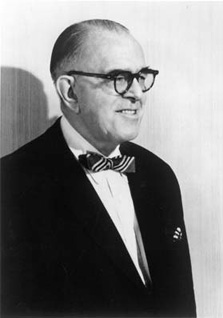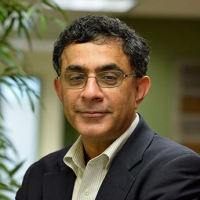 THE STARR FOUNDATION was established in 1955 by CORNELIUS VANDER STARR, who moved to China after World War I and founded the Asia Life and American Asiatic Life Insurance Companies. Today, American International Group, Inc., as the enterprises are known, is the world’s largest insurance organization, with more than 88 million customers around the globe, and leads in property casualty insurance, life insurance and retirement services, mortgage insurance, and aircraft leasing. The Starr Foundation supports education and especially student aid, international organizations, medicine and health care, the arts and humanities, civic and public affairs, and social services. The Starr Foundation has given generous and longtime support to Johns Hopkins.
THE STARR FOUNDATION was established in 1955 by CORNELIUS VANDER STARR, who moved to China after World War I and founded the Asia Life and American Asiatic Life Insurance Companies. Today, American International Group, Inc., as the enterprises are known, is the world’s largest insurance organization, with more than 88 million customers around the globe, and leads in property casualty insurance, life insurance and retirement services, mortgage insurance, and aircraft leasing. The Starr Foundation supports education and especially student aid, international organizations, medicine and health care, the arts and humanities, civic and public affairs, and social services. The Starr Foundation has given generous and longtime support to Johns Hopkins.
The Starr Foundation Chair in South Asia Studies
Paul H. Nitze School of Advanced International Studies
Established in 2005 by The Starr Foundation
Held by Devesh Kapur
 DEVESH KAPUR, Ph.D., joined the Johns Hopkins University School of Advanced International Studies (SAIS) in July 2018 from the University of Pennsylvania, where he was a professor of political science and the director of the Center for the Advanced Study of India, holding the Madan Lal Sobti Chair for the Study of Contemporary India. Prior to his tenure at Penn, he was the Associate Professor of Government at the University of Texas at Austin, and the Frederick Danziger Associate Professor of Government at Harvard. Kapur received the Joseph R. Levenson Teaching Prize, awarded to the best junior faculty at Harvard College, and Outstanding Teaching in Political Science by the American Political Science Association in 2005.
DEVESH KAPUR, Ph.D., joined the Johns Hopkins University School of Advanced International Studies (SAIS) in July 2018 from the University of Pennsylvania, where he was a professor of political science and the director of the Center for the Advanced Study of India, holding the Madan Lal Sobti Chair for the Study of Contemporary India. Prior to his tenure at Penn, he was the Associate Professor of Government at the University of Texas at Austin, and the Frederick Danziger Associate Professor of Government at Harvard. Kapur received the Joseph R. Levenson Teaching Prize, awarded to the best junior faculty at Harvard College, and Outstanding Teaching in Political Science by the American Political Science Association in 2005.
Kapur’s research has focused on five broad areas that examine the political and institutional determinants of economic development: international financial institutions; political and economic consequences of international and internal migration; the effects of market forces and urbanization on the well-being of socially marginalized groups in India; governance and public institutions; and higher education. His book, Diaspora, Democracy and Development: The Impact of International Migration from India on India (Princeton University Press) earned him the 2012 Distinguished Book Award of the International Studies Association, while The Other One Percent: Indians in American (with Sanjoy Chakravorty and Nirvikar Singh) was a Choice Outstanding Title of 2017. His other publications include The World Bank: Its First Half Century (with John Lewis and Richard Webb) and Defying the Odds: The Rise of Dalit Entrepreneurs (co-authored with D. Shyam Babu and Chandra Bhan Prasad). His latest edited works are Navigating the Labyrinth: Perspectives on India’s Higher Education (with Pratap Bhanu Mehta), Rethinking Public Institutions in India (with Pratap Bhanu Mehta and Milan Vaishnav), The Costs of Democracy: Political Finance in India (with Milan Vaishnav) and Regulation in India: Design, Capacity, Performance (with Madhav Khosla).
He earned a BTech in Chemical Engineering from IIT (BHU) Varanasi; an MS in Chemical Engineering from the University of Minnesota; an his PhD from the Woodrow Wilson School at Princeton.